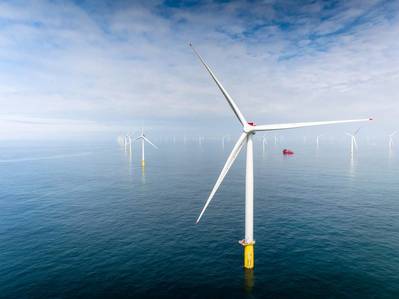Statoil to Become Equinor, Dropping 'Oil'
Shareholders in Norway's largest company, Statoil, will approve on Tuesday the board's proposal to drop "oil" from its name as its seeks to diversify its business and attract young talent concerned about fossil fuels' impact on climate change.
From Wednesday, the majority state-owned company will change its 46-year-old name to Equinor and trade on the Oslo Exchange under the new ticker EQNR.
The Norwegian government, which has a 67 percent stake in the firm, has said it will back the move.
The oil and gas company said the name change was a natural step after it decided last year to become a "broad energy" firm, investing up to 15-20 percent of annual capital expenditure in "new energy solutions" by 2030, mostly in offshore wind.
"The key reason for a company to change its name is when it wants to widen the scope of its activity or direction. Another reason would be because it is in trouble, and it has a reputational problem," Allyson Stewart-Allen, a London-based international branding expert and the CEO of International Marketing Partners, told Reuters.
"I don't believe that's the case with Statoil."
While the company's profits are growing again, its hydrocarbon business has come under increased scrutiny after the Paris climate deal in 2016.
"A name with 'oil' as a component would increasingly be a disadvantage. None of our competitors has that. It served us really well for 50 years, I don't think it will be the best name for the next 50 years," Eldar Saetre, Statoil's chief executive, told Reuters.
The new name was meant to arouse curiosity among young people so they see the other aspects of Statoil, including renewable energy, he added.
Technology students became less interested in working for oil firms after oil prices crashed in 2014 and renewable energy gained in prominence.
Statoil ranked 15th in an annual survey of the Nordic country's most attractive employers conducted by karrierestart.no, a Norwegian careers website, and Norwegian firm Evidente, published on May 3. In 2013, it ranked first.
There are signs, however, that the name change could help it climb the ranks.
"Students who answered the survey after (news of) the name change found Statoil to be between 5 percent and 10 percent more attractive as an employer," Arne Kvalsvik at Evidente said.
"It's likely that Statoil's name change will have a positive impact on its reputation going forward."
Statoil said it remained the first choice among technology students, citing another survey by Swedish firm Universum.
Truls Gulowsen, head of Greenpeace Norway, said the name change would not be sufficient to improve Statoil's image as long as the firm was exploring in vulnerable areas, such as the Arctic or the Great Australian Bight.
(Additional reporting by Ron Bousso; Editing by Dale Hudson)














